wird zur
Weltlandbrücke
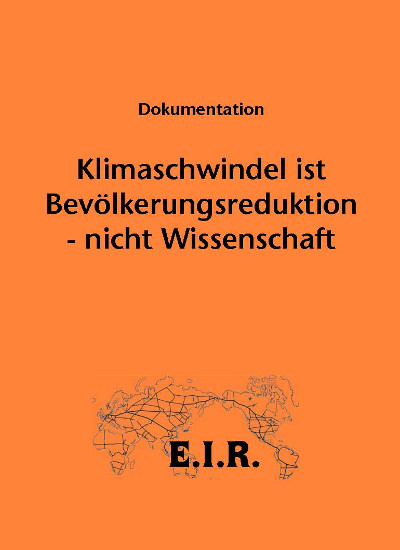
Klimaschwindel ist Bevölkerungsreduktion
– nicht Wissenschaft

BRICS-Staaten: Wirtschaftsaufbau
statt Selbstzerstörung

The New Silk Road Becomes The
World Land-Bridge

EU-Imperium Nein Danke! Für ein Europa souveräner Republiken
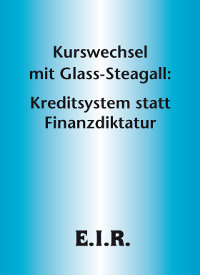
Kurswechsel mit Glass-Steagall: Kreditsystem statt Finanzdiktatur

Ein neues Paradigma
für das Überleben
der Zivilisation

Obama's War on America: 9/11 Two

Neuer Kurs für die Welt:
Großprojekte statt grüner Deindustrialisierung

Statt Finanzkrach
und Kriegsgefahr:
Entwicklung der Welt!

Wirtschaftsaufbau für
das 21. Jahrhundert - Trennbankensystem
statt Rettungspakete!
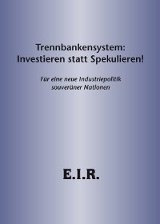
Trennbankensystem:
Investieren statt Spekulieren! Für eine neue Industriepolitik souveräner Nationen
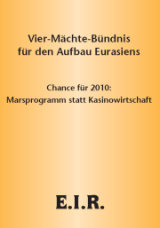
Vier-Mächte-Bündnis für den Aufbau Eurasiens - Chance für 2010: Marsprogramm statt Kasinowirtschaft
Mit Leseprobe:
Vorwort von Helga Zepp-LaRouche
und Es tut sich was in Asien von Lyndon LaRouche
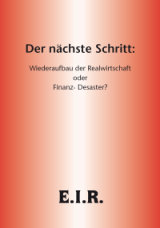
Der nächste Schritt: Wiederaufbau der Realwirtschaft
oder
Independent member of the Irish Dail (parliament) Thomas Pringle was in Luxembourg, on Oct. 23, 2012, for a hearing on the legal challenge to the European Stability Mechanism (ESM) which he filed at the European Court of Justice. While EU law prohibits bailouts of states, the ESM was clearly created to become a permanent bailout fund, through which states rescue the bankrupt banks. To get around the legal obstacle, the ESM has been declared to be a treaty among individual states, not subject to EU law.
EIR's Claudio Celani interviewed Thomas Pringle during a break in the hearing.
The transcript of the interview:
EIR: So, Mr. Pringle, we heard today, here in Luxembourg at the European Court of Justice your arguments against the ESM, the European bailout fund. Your attorney basically said that the ESM violates European law itself. Then we heard arguments from in total more than a dozen representatives of member nations, the European Parliament, the European Union, etc., and it's not over yet; we are on break. Can you tell me if you found convincing arguments from your counterparts?
Pringle: I suppose, in a word: No. It's very interesting listening to submissions from the other member states. Obviously, they were all party to the decision that established the ESM, so they have to defend their position.
It's interesting what they haven't addressed, rather than what they have addressed. In none of the submissions, have they addressed how the treaties could have actually been amended to make this possible. And I always have argued that that could have been done. Obviously, they took a decision, for whatever reason, not to do that and to establish this ESM outside the control of the Union. And it's interesting, I think, that nobody of those has addressed any of those, what could have been done. And they say that it is the only option they had, which we have always argued that they had others.
EIR: Yes, we heard also some arguments which went into political contents, for example, the German representative, but also other representatives. He said that we must put this discussion in context, so he made it political. And he said basically, that if there are doubts cast on the legality of the ESM, this would unleash the markets, and this would be the doom of the euro and of Europe. Do you think this is a scare tactic?
Pringle: Well, obviously, because the decision to establish this ESM was taken in October 2010, over two years ago at that stage. And we have how the so-called markets have reacted all during that period. So, we couldn't have had any more instability than we have had, since they made this decision.
So, I think that it is very important that this court leaves politics at the door, and the court considers the treaties as being the founding body of the Union and looks only at those purposes. And I think it's wrong that politics should be brought into it and looking at the wider political situation, in making the arguments before the court.
EIR: I was also struck by the arguments, the speech of the British representative. Because the British are not in the euro, but they are in the European Union. And apparently, his speech, the speech of the British demonstrates that it's not about the euro, otherwise the British would not care; they would be indifferent. Or how do you characterize that role?
Pringle: Yeah, I suppose, when you look at the City of London and the financial services there, Britain, while they are not a member of the Eurozone, they are very closely linked to the Eurozone. And they would see the survival of the Eurozone and the protection of the euro, as being very important to their own interest as well. And for that reason I presume that they went along with the amendment to Article 136 [of the Lisbon Treaty], because it's in their interest.
EIR: So, with that, let's take a step back from the discussion of legality, and let's go into politics and into the economy. I mean, this raises the issue, what is the ESM for? Is it for the euro, for the states, or is it for the banks, to save the banks?
Pringle: Well, I think it's obvious, and that it's for the banks. And that it's for making the Irish bailout, a bailout right across Europe, where citizens become responsible for the banking debts, debts that they are not responsible for accruing, but citizens will be responsible for it in the future.
The ESM is intended to lend money to sovereign states who will use up that money to recapitalize the banks, and the citizens of those states are responsible for the repayment of that money. So, it is an Irish bailout for Europe.
EIR: Yes, your country Ireland has been victimized in the first place, because in Euroland it is not allowed to let banks fail. So, the taxpayers have to come in and bail out the banks.
If we had had in the first place a strict division, as is being discussed right now, between commercial banks, deposit banks which are protected by government, and investment banks, which speculate, this would not have been the case. So, are you in favor of this, now?
Pringle: Yes, that wouldn't have been the case if we had had effective regulation, we wouldn't have the situation either. If the German and French and English banks had acted responsibly in their lending to Irish banks, we wouldn't be in the situation either. So the Irish problem is not the creation of Ireland solely. It is a problem of regulation and the neo-liberal politics and market capitalism that has continued for the last number of years.
And I think that we have to make banks responsible for their own debts. At this stage in Ireland, we have given over EU80 billion to our banks. We will continue to pay for the next 30 years, possibly another EU50 billion for the saving of Anglo Irish Bank. And all of this to protect the euro! And the Irish people are made responsible for all that debt. And even last week we paid EU508 million into the ESM, where Germany and other countries are saying it can't sort out retrospectively our problems. So, it shows that the intention is to make citizens responsible for the banking system and not the banks themselves.
EIR: Now, there is the unresolved financial crisis and the deepening economic crisis, because the world is now going again into a recession, and there are big, dark clouds on the horizon. But there are also big, dark clouds on the political horizon in the world, in terms of increasing conflicts. Do you see a connection, is there a danger that we're going towards a general conflict, if the world economic and financial crisis is not solved?
Pringle: That danger is there, in times of uncertainty, at least, further uncertainty. I think that the steps that are being taken and the austerity right across the Eurozone and across the world has been imposed on citizens, is fueling that crisis and making it even worse.
In the Irish situation, the government tells us that we can take money out of the economy and expect the economy to grow, and we have seen now over the last four years that that can't happen! And if you do that on a continent-wide basis, at least it is the situation where now we have in Ireland one in ten people cannot afford to feed themselves, where we have 80,000 people a year leaving the country, to go to other countries in search of work, which, as the economic downturn across the world takes hold, will mean that they will have nowhere to go, and that will create further potential for conflict. Where what we should have, is governments taking responsibility for their citizens rather than their banks, and dealing with the issues. And the solution to debt as not to add more debt to it.
EIR: Now, this legal procedure will resume in about one and a half hours, and some time in the future, this court will give a verdict, a ruling. What do you think, if the court supports the arguments of European Union and of the governments, do we have a tyranny in this case?
Pringle: Well, I don't like to think what will happen if they do. I think that it will be a very bad day for democracy, across Europe and for citizens. It will mean that the intergovernmental way that the decisions are being made now, will be made to be the future. So, we will see large countries and strong economic countries will dominate and force their will on other countries, which I think will be a very bad thing for the Union.
EIR: Okay. This is a big challenge for this court. Thank you, Mr. Pringle.